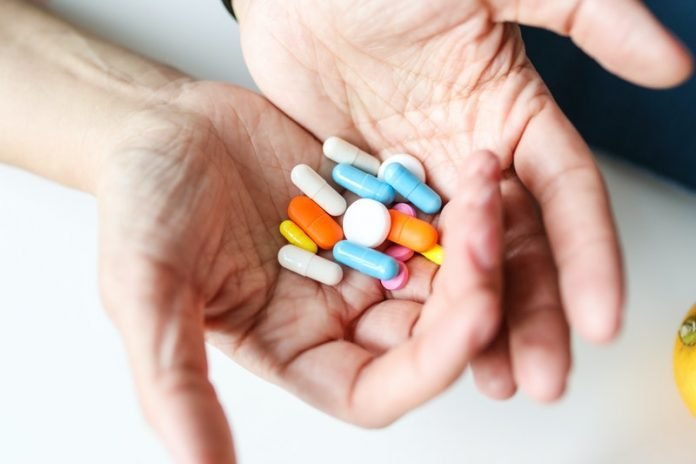
In a study published in The Lancet Respiratory Medicine, researchers from the University of Birmingham found a drug that may offer benefit to some patients hospitalized with COVID-19 pneumonia.
The team tested 54 patients receiving ‘usual care’ (steroids and oxygen or ventilation, depending on the severity of disease) and 57 patients given usual care as well as a single intravenous dose of 150mg of namilumab.
In the namilumab group, 11% (6) were still in hospital by day 28, compared to 20% (11) in the usual care group. Of those in the namilumab group, 11% (6) patients died compared to 19% (10) who died in the usual care group by day 28.
Of those on a ward, the probability of discharge at day 28 was 64% in the usual care cohort, compared to 77% in the Namilumab cohort.
Of those in ICU, the probability of discharge at day 28 was 47% in the usual care group, compared to 66% in the Namilumab cohort.
They found the drug namilumab targets a ‘cytokine’ that is naturally secreted by immune cells in the body but, at uncontrolled levels, is believed to be a key driver of the excessive and dangerous lung inflammation seen in COVID-19 patients.
Namilumab is currently being researched for application in rheumatoid arthritis and psoriatic arthritis.
In another study published in the BMJ, researchers found a high dose of an inexpensive and globally available blood-thinning medication reduces the risk of death in hospitalized patients who are moderately ill with COVID-19.
They compared the effects of a high, therapeutic dose of heparin to a prophylactic low dose for patients with moderate COVID-19.
The study is from St. Michael’s Hospital. One author is Dr. Peter Jüni.
Heparin is a universally used blood thinner that prevents the formation of blood clots. D-dimers are protein fragments produced when a blood clot gets dissolved in the bloodstream—increased d-dimer levels indicate higher risks of blood clots.
The researchers studied 465 patients in hospitals around the world and found that the dosing of heparin did reduce all-cause death in moderately-ill COVID-19 patients admitted to hospital by 78%.
The study confirms therapeutic heparin is beneficial in patients who are on the ward with COVID-19, but other studies suggest it could be harmful to patients who are in critical care.
If you care about Covid, please read studies about new risk factor for severe COVID-19, and findings that vaccines may not prevent severe COVID-19 in these people.
For more information about Covid, please see recent studies about drug that could offer much-needed COVID-19 protection, and results showing that aspirin and other drugs for inflammation could help prevent COVID-19 deaths.
Copyright © 2022 Knowridge Science Report. All rights reserved.



